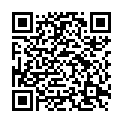|
|
|
| Module code: BSP-14 |
|
|
2U+2S (4 hours per week) |
|
6 |
| Semester: 3 |
| Mandatory course: yes |
Language of instruction:
German |
Assessment:
BSP-14.1/.2: Oral examination (MP) (bn)
[updated 20.05.2020]
|
BSP-14 (P322-0052, P322-0072) Social work and early childhood, Bachelor, ASPO 01.10.2019
, semester 3, mandatory course
|
60 class hours (= 45 clock hours) over a 15-week period.
The total student study time is 180 hours (equivalent to 6 ECTS credits).
There are therefore 135 hours available for class preparation and follow-up work and exam preparation.
|
Recommended prerequisites (modules):
None.
|
Recommended as prerequisite for:
|
Module coordinator:
Prof. Dr. Christian Schröder |
Lecturer:
N.N.
[updated 18.04.2024]
|
Learning outcomes:
After successfully completing this course, students will:
- be able to apply basic didactic and methodological models and relate them to social work,
- be able to critically classify discourses and representatives from the field of social work, life-world orientation, resource orientation, social-space orientation and adopt a position on them,
- be able to apply principles and methods to accompany and promote learning, educational, support and (social) political activation and organizational processes of the addressees, (clients and/or groups),
- be able to organize and implement gender- and age-specific differentiated forms of arrangements of the above-mentioned processes for the various target groups of social work,
- be able to implement age-specific differentiated forms of arrangements of the above-mentioned processes,
- be able to classify basic empirical findings and methods of action with regard to the addressees and the fields of action, as well as
- apply criterion-based, situation- and context-appropriate applications of social work methods.
In addition, students will:
- be able to use principles and methods to accompany and support addressee counseling processes, (clients and/or groups),
- be able to apply relevant models and principles of resource-supporting conversation and counseling, as well as
- be able to organize age-specific differentiated forms of arrangements of the above-mentioned processes.
- be able to develop methodical competence for the improvement of a developmental and participation-promoting encounter design (conversation, moderation, mediation).
[updated 20.05.2020]
|
Module content:
An overview of methods of action in social work will be presented in the seminar BSP 14.1. Historical and political discussions about the development of social work methods will be held. Based on this, tutorial BSP 14.2 will deepen knowledge about conversations, counseling and moderation in large and small groups. We will also focus on the importance of heterogeneity for the design of group, individual and social settings and didactic and methodical planning, implementation and evaluation with regard to inclusion.
[updated 20.05.2020]
|
Teaching methods/Media:
Group work within the framework of the seminar
Independent study: reading and processing scientific literature
Job shadowing in social work fields
Learning and resource-oriented, as well as social space-oriented action planning (individually and in small groups)
Role playing in pairs and group settings
Short presentations within the framework of the seminar
[updated 20.05.2020]
|
Recommended or required reading:
Galuske, Michael (2013): Methoden der Sozialen Arbeit: Eine Einführung. Beltz Juventa.
Kreft, Dieter; Müller, Carl Wolfgang (2017): Methodenlehre in der Sozialen Arbeit : Konzepte, Methoden, Verfahren, Techniken. München : Ernst Reinhardt Verlag.
Schilling, Johannes: Didaktik/Methodik Sozialer Arbeit. München: Ernst Reinhardt Verlag.
[updated 20.05.2020]
|


